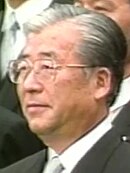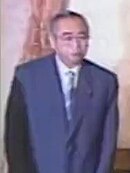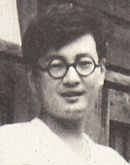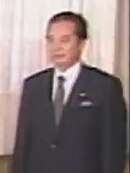
Back Eleccions generals japoneses de 1993 Catalan Shūgiin-Wahl 1993 German Elecciones generales de Japón de 1993 Spanish Élections législatives japonaises de 1993 French הבחירות הפרלמנטריות ביפן 1993 HE Elezioni parlamentari in Giappone del 1993 Italian 第40回衆議院議員総選挙 Japanese 제40회 일본 중의원 의원 총선거 Korean Wybory parlamentarne w Japonii w 1993 roku Polish Tổng tuyển cử Nhật Bản 1993 Vietnamese
| |||||||||||||||||||||||||||||||||||||||||||||||||||||||||||||||||||||||||||||||||||||||||||||||||||||||||||||||||||||||||||||||||
All 511 seats in the House of Representatives of Japan 256 seats needed for a majority | |||||||||||||||||||||||||||||||||||||||||||||||||||||||||||||||||||||||||||||||||||||||||||||||||||||||||||||||||||||||||||||||||
|---|---|---|---|---|---|---|---|---|---|---|---|---|---|---|---|---|---|---|---|---|---|---|---|---|---|---|---|---|---|---|---|---|---|---|---|---|---|---|---|---|---|---|---|---|---|---|---|---|---|---|---|---|---|---|---|---|---|---|---|---|---|---|---|---|---|---|---|---|---|---|---|---|---|---|---|---|---|---|---|---|---|---|---|---|---|---|---|---|---|---|---|---|---|---|---|---|---|---|---|---|---|---|---|---|---|---|---|---|---|---|---|---|---|---|---|---|---|---|---|---|---|---|---|---|---|---|---|---|---|
| Turnout | 66.99% ( | ||||||||||||||||||||||||||||||||||||||||||||||||||||||||||||||||||||||||||||||||||||||||||||||||||||||||||||||||||||||||||||||||
| |||||||||||||||||||||||||||||||||||||||||||||||||||||||||||||||||||||||||||||||||||||||||||||||||||||||||||||||||||||||||||||||||
 | |||||||||||||||||||||||||||||||||||||||||||||||||||||||||||||||||||||||||||||||||||||||||||||||||||||||||||||||||||||||||||||||||
| |||||||||||||||||||||||||||||||||||||||||||||||||||||||||||||||||||||||||||||||||||||||||||||||||||||||||||||||||||||||||||||||||
| This article is part of a series on |
| Politics of Japan |
|---|
 |
|
|
General elections were held in Japan on 18 July 1993 to elect the 511 members of the House of Representatives. The Liberal Democratic Party (LDP), which had been in power since 1955, lost their majority in the House. An eight-party coalition government was formed and headed by Morihiro Hosokawa, the leader of the Japan New Party (JNP). The election result was profoundly important to Japan's domestic and foreign affairs.
It marked the first time under the 1955 System that the ruling coalition had been defeated, being replaced by a coalition of liberals, centrists and reformists. The change in government also marked a change in generational politics and political conduct; the election was widely seen as a backlash against corruption, pork-barrel spending and an inflated bureaucracy. Proposed electoral reforms also held much influence over the election.[1] Eleven months after the election, with the electoral reform legislation that was its raison d'etre passed, the eight-party coalition collapsed.[2] These were the last general elections to use the single non-transferable vote electoral system, with the 1994 electoral reform efforts changing the system to parallel voting starting with the next elections.
- ^ "Japanese politics and the July 1993 election". ResearchGate. Retrieved 2019-06-10.
- ^ "Chapter Sixteen Period of President Kono's Leadership | Liberal Democratic Party of Japan". www.jimin.jp. Retrieved 2019-06-10.








